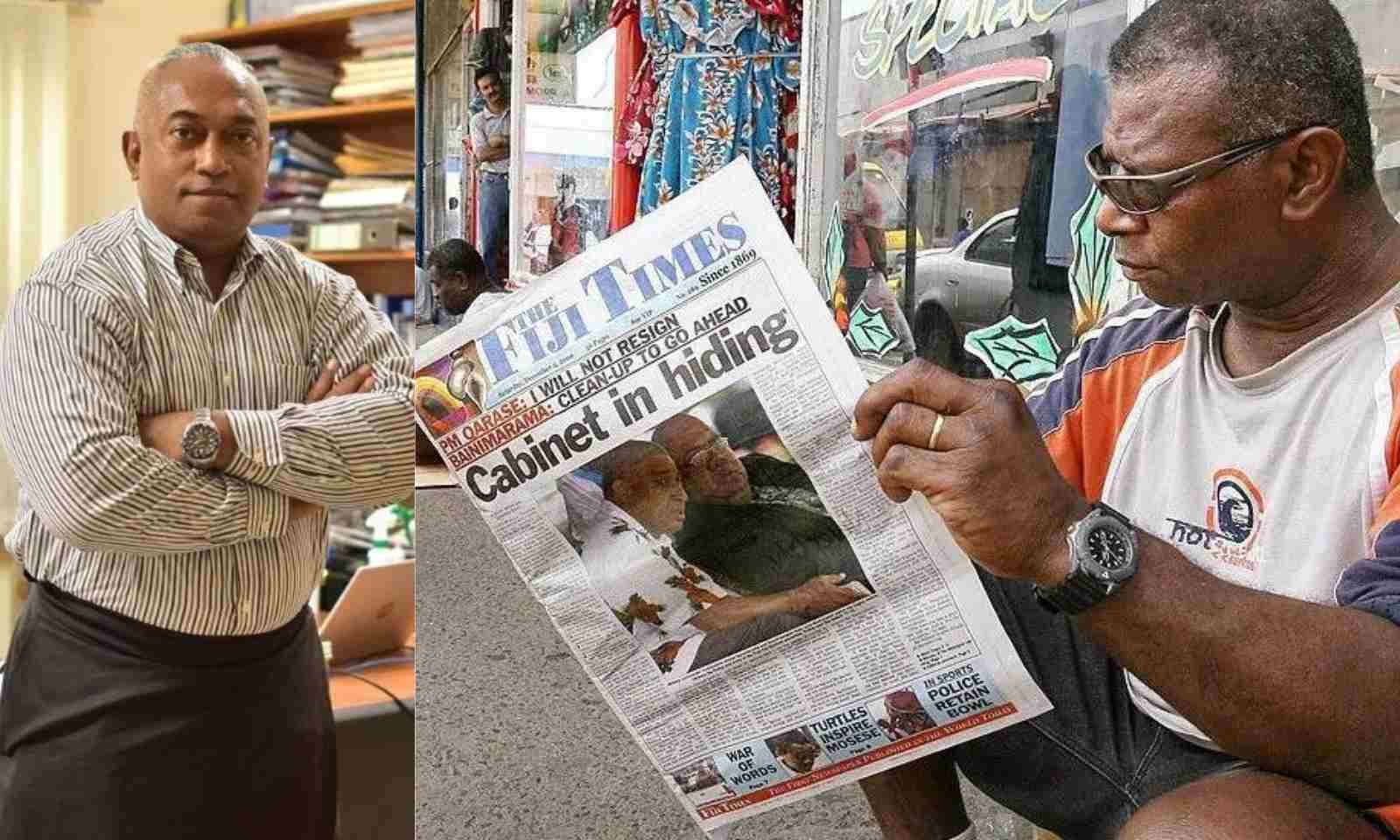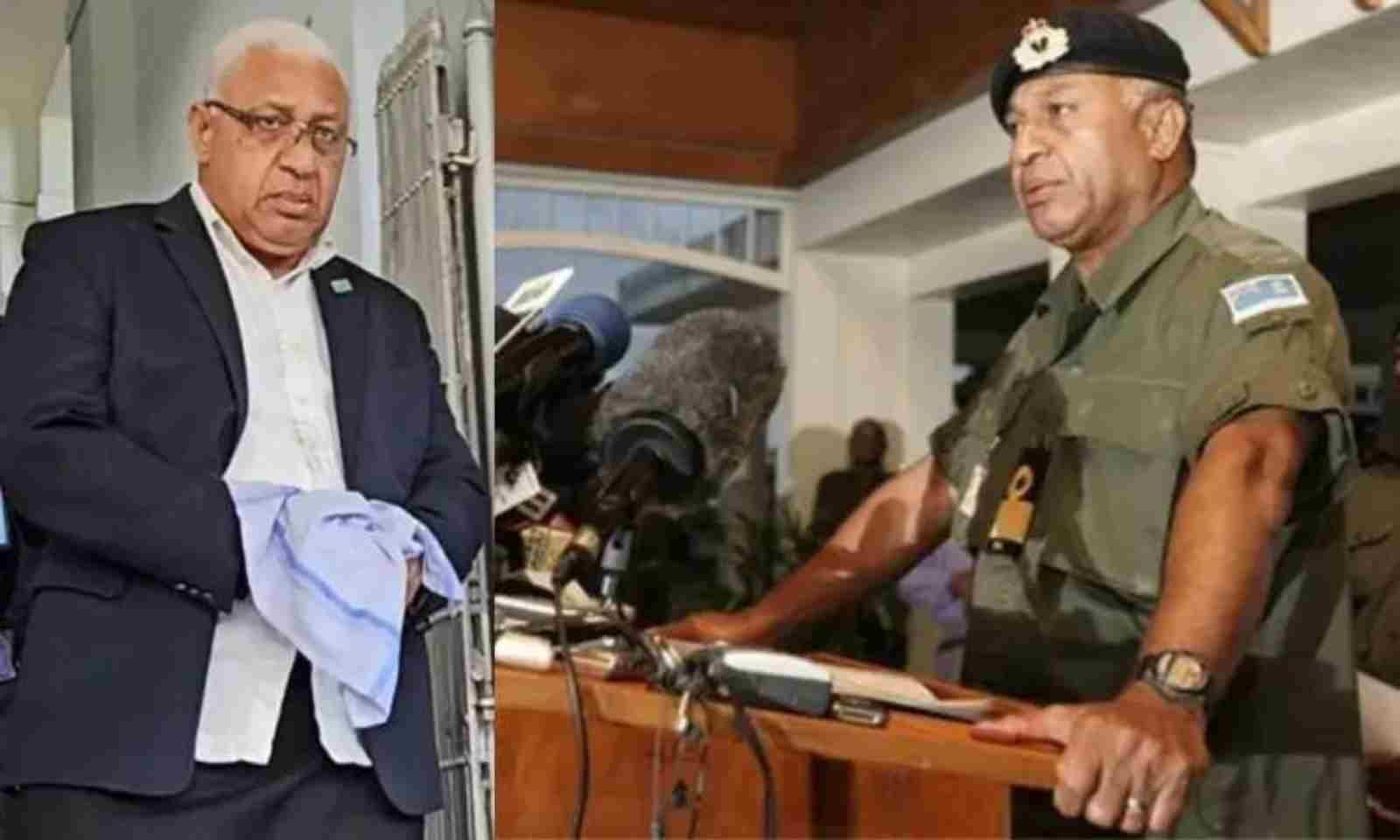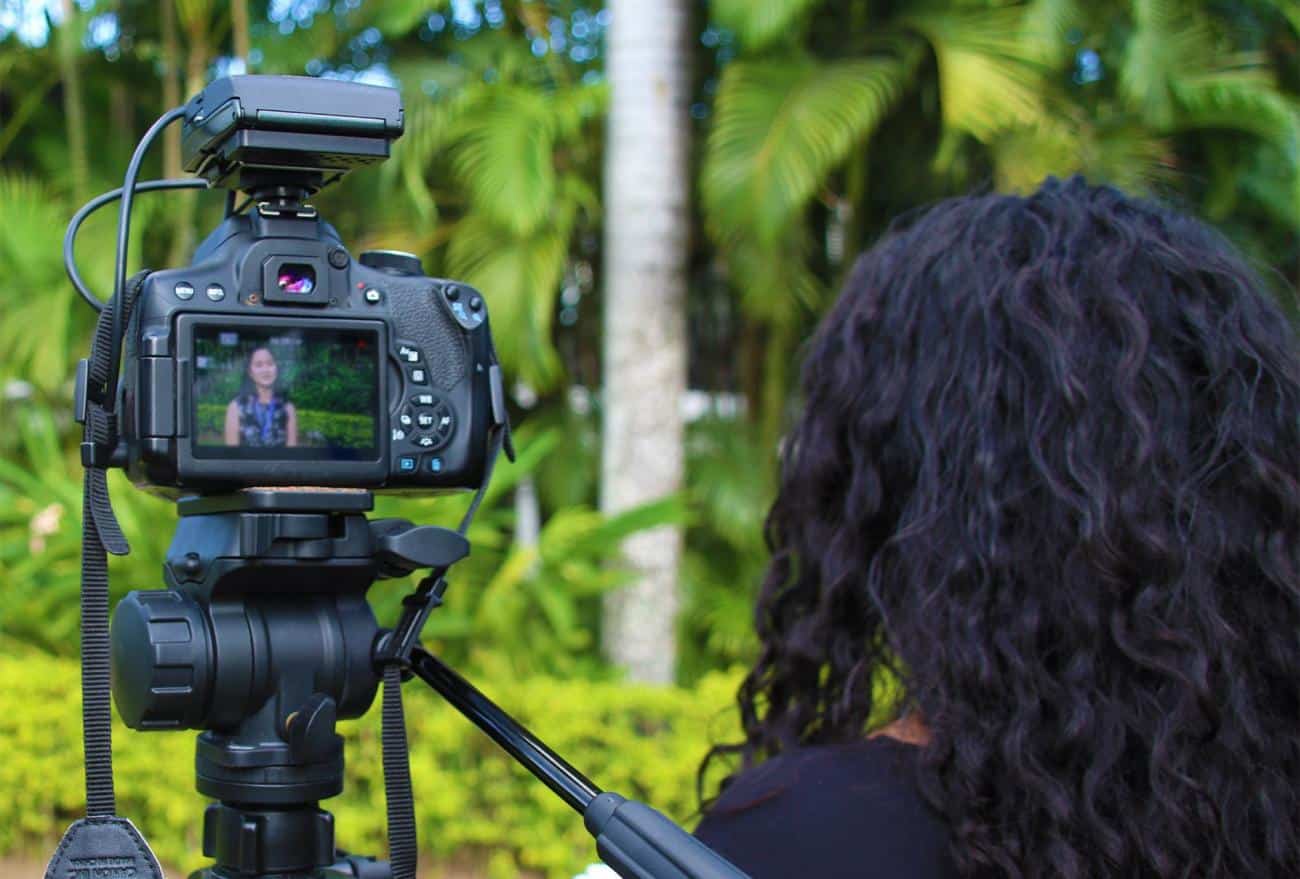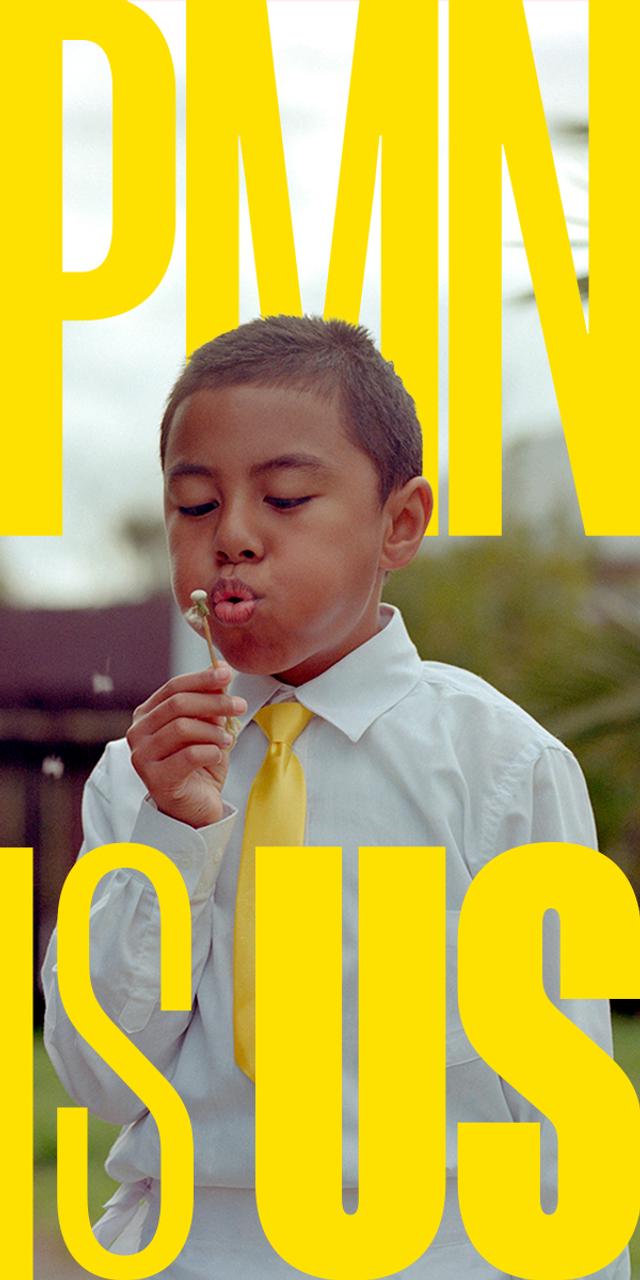

The Fiji government failed to protect, frequently cracking down on, independent media in the Pacific island nation, Reporters Without Borders says.
Photo/supplied
'16 years of suppression'
Editor in Chief of the Fiji Times newspaper, Fred Wesley, tells of the challenges the media faced under the military-backed regime of Frank Bainimarama.


‘Unacceptable’: Pacific Labour MP condemns violent drag storytime protest

NZ’s foreign aid reset to focus on 'fewer, bigger, better' projects

Coffee Island launches at Māngere Arts Centre

A half-century fight: Restoring Tapaau’s citizenship at 90

‘Unacceptable’: Pacific Labour MP condemns violent drag storytime protest

NZ’s foreign aid reset to focus on 'fewer, bigger, better' projects

Coffee Island launches at Māngere Arts Centre
Newsmakers across the Pacific are struggling to resist disinformation and protect press freedom, the Editor-in-Chief of Fiji's oldest newspaper says.
Fred Wesley said media freedom in Fiji was under fire for 16 years, even more, as political pressure on journalists intensified nationwide.
He said there was a chilling pattern of political disregard for Fijian journalists’ safety.
Fiji is ranked 44th on the 2024 World Press Freedom Index with Papua New Guinea the worst-ranked Pacific nation at 91.
But this wasn't the case for Fiji nearly two decades ago. In December 2006, press freedom in the Pacific island nation fell victim to a coup by then-army commander Frank Bainimarama.

Fred Wesley is the editor-in-chief of the Fiji Times newspaper. Photo/supplied
He was sentenced to one year in prison in May for perverting the course of justice.
During Bainimarama's 16-year regime, he was condemned for the undisguised hostility of Fiji's armed forces to press freedom and the privately-owned media.
The private-owned Fiji Times newspaper stopped publishing, the state-owned broadcast media suspended their news programmes and foreign journalists were prevented from covering some events.
"Certainly, not a period that any of us would want to go through again," Wesley told PMN Fiji's Nemai Tagicakibau.
"Sixteen years is a very long time to be going through a period where the media was suppressed.
"Papua New Guineans are having issues as well because of media legislation, planned media legislation by the government.
"We had something called the Media Industry Development Act. It started as a decree in 2010, became an act after that, and this was repealed last year in April.
"There's a certain section in the Media Act that served as a guideline for all editors in the country - what we should be doing, what we shouldn't be doing.
"It was about basically not being allowed to print or publish or broadcast anything that was of national interest, that was against the public interest, against national interest, and that would bring about communal discord.

Former Fijian prime minister and coup leader Frank Bainimarama is in prison. Photo/supplied
"The problem here was there was no clarity, no subsection that told us what was a breach, what constituted a breach, and who determined what a breach was.
"Section 24 was on the penalties. Any breach of Section 22 constituted, well if you were convicted, a company was liable to a fine not exceeding $100,000. An editor was liable for a fine upon conviction of not exceeding $25,000 and a two-year jail term."
Wesley, who was appointed to head the Times' newsroom in 2010, was sentenced to six months in jail for a contempt of court case in 2013, which was suspended for two years.
He was acquitted of a charge of sedition by the Fiji High Court in 2018. Both cases were related to reports published in the Fiji Times newspaper, vernacular edition, and online platforms.
"It certainly wasn't a walk in the park for any of us, but I suppose in such challenging times, they also bring out the passion in journalists, the passion in editors.
"I've been there, I've been able to empower people to make informed decisions every day. Again it hasn't been an easy journey, but something that we can reflect on now and look on, look back, and say that we came off a challenging period in our history.
"When you have suppression at an unprecedented level, a period where the narrative was dictated, where editors were put under pressure. Editors were second-guessing, not knowing what you can put out and what you can't."
While Bainimarama's government expressed its commitment to ensuring press freedom continued, editors were arrested, expelled, and banned from re-entering Fiji.
In 2014, female journalists were reportedly threatened during an election campaign.

Press freedom: Is self-censorship still present in Pacific media? Photo/supplied
The World Press Freedom Index by nonprofit Reporters Without Borders, or RSF, published New Zealand as the best-performing country in the Pacific region, at 19th place. Timor Leste's in 20th spot, Samoa 22, Australia 39, and Tonga in 45th place.
The index scores countries and territories based on five indicators: political support and respect, security, economic constraints, legislative environments, and sociocultural factors. Of the five, the political indicator dropped the most since December 2022, averaging a fall of 7.6 points worldwide.
In 2020, RSF condemned Bainimarama's military overthrow of an elected government, saying the regime had revealed its true nature - "a repressive return to the past".
"It is regrettable that the international community failed to head off this attack on democracy and press freedom, as everyone could see it coming. The United Nations, the European Union, and countries in the region must move quickly to obtain the restoration of freedoms, including that of the media.”
Reporters Without Borders also urged the European Union to suspend a cooperation accord signed with Fiji in 2000 as part of the ACP-EU framework.
Fiji's Media Council had condemned the coup, calling it a violation of the constitution and a “shame for the country".
With the draconian media law repealed since Bainimarama lost his third bid for re-election, Wesley says, "We are now back on a level playing field.
"Everyone's getting the same kind of information. It's now about making another point of difference. It's also about accepting the transition from traditional media and newspapers to digital platforms.
"Taking that next step and also nurturing our young journalists to embrace the need for people to be empowered, to embrace democracy, to embrace freedom of expression, freedom of speech, and drive that."
Listen to Fred Wesley's full interview on PMN Fiji.

